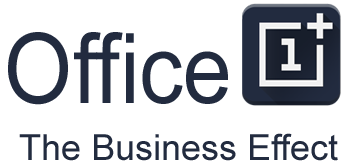As the COVID-19 pandemic continues, people are beginning to evaluate the way they spend their time and how each decision affects their overall quality of life. Many have found that because digital media plays such a huge role in daily life, it’s starting to impact their mental and physical health. As a result, people are beginning to limit their digital usage as much as possible to regain a more personal interaction with their loved ones and their surroundings.
As people adjust the way they spend their time online, companies are having to get creative when it comes to attracting customers. Competition is fierce, so a company’s website must be up to par in terms of access and aesthetics to attract and retain customers. Below, we explore some website features consumers love.
Table of Contents
1. Easy Navigation
Above all else, consumers value easy navigation. Of course, the website should be attractive, but if you can’t find what you’re looking for quickly and easily, it really doesn’t matter how good it looks. A UI design agency understands the importance of this feature and will prioritize it over all else to create a website that not only looks great but functions at a level that users find fast and efficient.
2. Innovative Appearance
A website’s appearance is another feature users find important when browsing the internet. An attractive appearance should enhance the site’s overall appeal and functionality, thus attracting users far and wide. Of course, any website re-design should consider the user’s access above all else. If aesthetics interfere with functionality, the design ideas should be reconsidered to avoid diminishing the user experience.
3. Expert Website Content
People want to know that you know what you’re talking about. They seek out expert website content that establishes a brand’s authority, and they want to know they can trust the products and services they purchase. With these things in mind, customers are always hungry for content that makes them feel at ease with buying what you’re offering.
Many users will leave a website never to return if they feel the content isn’t relevant. Examples of relevant content include company information (in the form of a succinct About Us page), accurate product descriptions, blog posts about the products or services offered, plus helpful information and advice that’s relevant to your niche.
4. Descriptions and Images
Most users agree that both written descriptions and visual images help to improve the overall user experience online. With that said, these elements should be strategically placed on the page to avoid overwhelming the senses while still producing an aesthetically pleasing appearance.
Companies need to pay particular attention to the mobile experience as many users browse the internet on smartphones and tablets. On such small screens, too much written and/or visual content displayed at once can be overwhelming and confusing. While written descriptions and visual images are important, they should be presented in a way that consumers can easily comprehend, no matter what device they’re using.
5. Social Media
Although social media isn’t an actual element of a company’s website, it’s an extension that many people find useful. This is especially true since most people turn to social media to find the companies and products they need. If your company doesn’t have a social media presence online, you’re missing out on a valuable opportunity to market to your target audience.
If you’re considering a website refresh or if you’re building a new website from scratch, you should prioritize the highly-valued website features listed above. It’s all about the user experience, so be sure your website includes the elements consumers love most.


el">el
https://www.facebook.com/شركة-ارم-عزل-حراري-عزل-مائى-110037991557676/https://www.facebook.com/شركة-ارم-عزل-حراري-عزل-مائى-110037991557676/